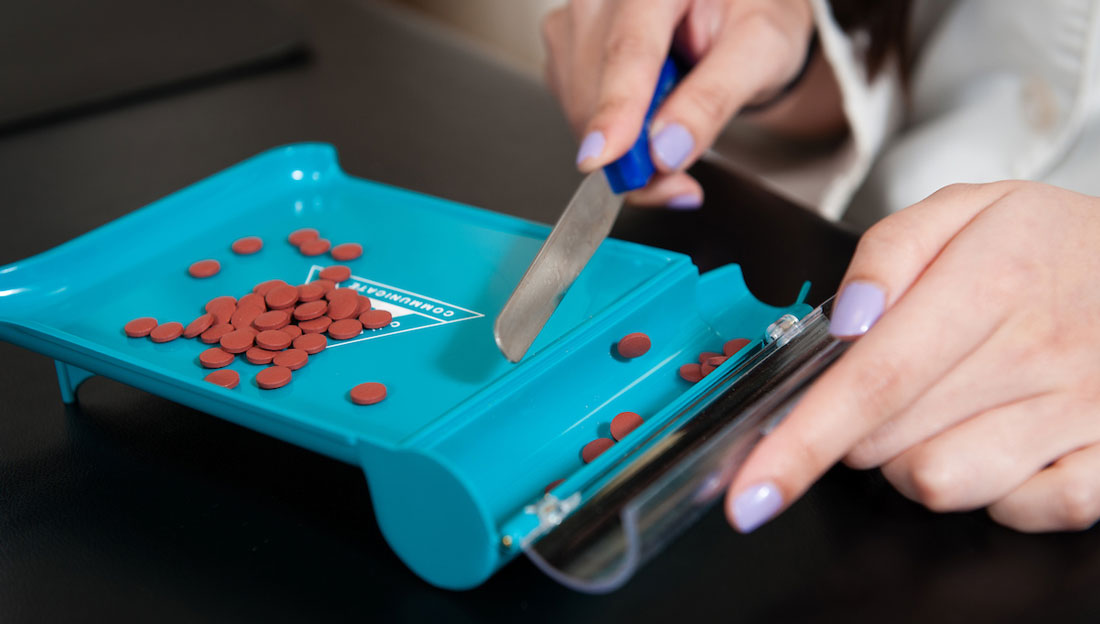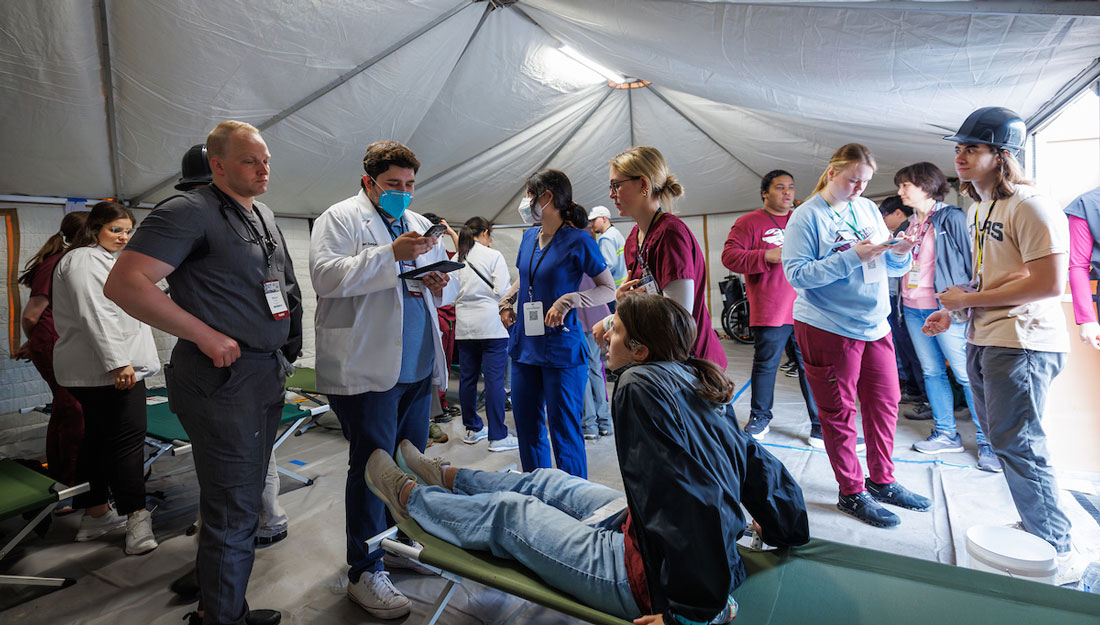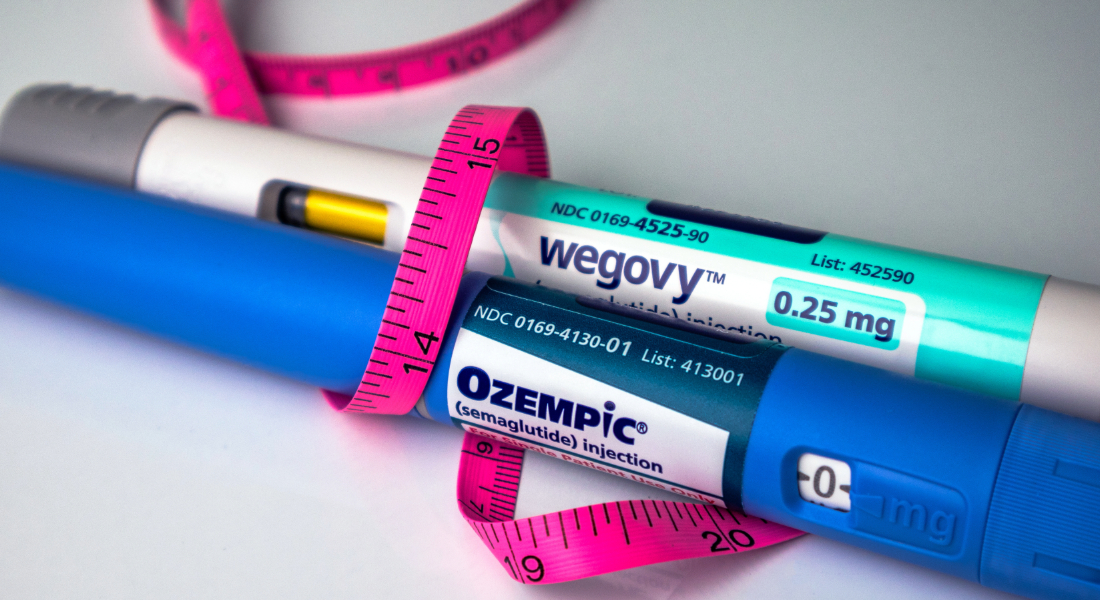Antidepressants: What is the best medication for depression?

With 322 million people in the world suffering from depression, it comes as no surprise that those diagnosed with depression experiences different signs and symptoms of the condition. The symptoms of major depressive disorder, or clinical depression, may affect how you feel, think and handle everyday activities.
“With a combination of therapy and antidepressants, most people with depression can find a treatment plan that works for them,” said Joy Alonzo, PharmD, MEng, specialist in the pharmacotherapy of mental disorders and a clinical assistant professor of pharmacy practice at the Texas A&M College of Pharmacy. “However, everyone will respond differently to each antidepressant, so you need to work closely with your health care providers to find what works best for you.”
Signs and symptoms of depression
Depression can present as a constant, persistent feeling of sadness or depressed mood nearly every day for at least 2 weeks can be associated with loss of interest in activities, weight gain or loss, fatigue, feelings of worthlessness or guilt, decreased ability to concentrate, sleep disturbances or thoughts of suicide.
“Everyone feels sad sometimes,” Alonzo said. “However, depression is not something that easily gets better on its own. There are many treatments, including therapy and medications, that can help.”
Persistent thoughts of suicide with or without a specific plan can constitute a medical emergency and should never be taken lightly. If you or someone you know is having thoughts of suicide, please call 911 and ask for mental health responders, or call the National Suicide Prevention Lifeline at 800-273-8255.
If you are worried that you might be experiencing symptoms of depression, speak with your health care provider. There are easy to answer screening tools your health care provider can administer and they can help set you up with a treatment plan. Treatment plans including a therapist are available for all budgets, including those who might not have health insurance.
Depression looks and feels differently for each person. However, some common depression symptoms are…
- Depressed mood most of the day, nearly every day
- Loss of interest in activities that used to give you pleasure
- Weight loss or weight gain, or changes in appetite
- Difficulty concentrating, or feeling like your thoughts and movements are slow
- Lack of energy
- Trouble sleeping
- Reduced appetite
- Feelings of worthlessness
- Recurrent thoughts of death or suicide, with or without a specific plan
Some people may even notice unexplained back pain or headaches or other physical symptoms that can’t be explained. If you are experiencing any of these problems for more than a few days at a time, then speak with your primary care provider about some next steps.
SSRIs and SNRIs for depression
SSRIs (selective serotonin reuptake inhibitors) and SNRIs (serotonin and norepinephrine reuptake inhibitors) are some of the most commonly prescribed antidepressants. These drugs work by restricting the reuptake process of important neurochemicals that regulate mood, sleep and appetite.
By restricting the reuptake of these important neurochemicals, the brain has more of those chemicals to send across brain tissue. Specifically, these drugs can inhibit the reabsorption of serotonin, norepinephrine and dopamine—all chemicals that directly influence feelings of happiness and stress. By increasing the amount of these important neurochemicals, the brain is able to better regulate mood, sleep, appetite and other feelings that contribute to depression.
“Since SSRIs and SNRIs work by influencing your natural brain chemistry, you may need to wait four to 6 weeks to see the full effect of these medications. Often patients will see a slight decrease in symptoms in about 2 weeks, which is when your healthcare provider will want to see you to check on progress. Patients often describe one of the first positive effects of taking the medication is improved sleep,” Alonzo said. “If you do not see results after a few weeks of starting a new medication, then speak with your health care provider. You may need to adjust your dosage, or need to change to a different medication. The treatment for depression is very personalized, and it is not uncommon for patients to try more than one medication before we found the one that works for you. Don’t stop taking the medication on your own.”
Ketamine and esketamine for depression
Ketamines and esketamines are not used as a first-line treatment for depression. They are often only prescribed when the patient has treatment-resistant depression, or depression that has not responded to other medications and therapies. Ketamine and esketamine are very similar in composition, but esketamine is remarkably more potent than ketamine. Ketamine is approved by the FDA as an anesthetic, but it is being used for treatment-resistant depression off-label, meaning it does not currently have FDA approval for this use.
Ketamines and esketamines can be used for very severe or life-threatening cases of depression that include suicidal ideation that can help the person long enough to give other antidepressants adequate time become effective.
Spravato© (Esketamine) nasal spray for depression
In March of 2019, the U.S. Food and Drug Administration approved the use of Spravato ©, an esketamine nasal spray, in conjunction with an oral antidepressant, for adults who have tried at least two other antidepressant medications, but have not benefitted from them. Spravato© is considered high risk and is only available through a system of tight distribution and monitoring. Spravato© is only to administered under supervision from the health care provider in a health care clinic or office and is not self-administered. Possible side effects after administration include sedation, disassociation, attention and judgement problems, and possibly worsening suicidal thoughts, patient’s will be monitored at the provider’s facility for at least 2 hours.
How long does it take for antidepressants to start working?
“Depending on the medication used, traditional antidepressants like SSRIs and SNRIs can take up to 4-6 weeks for full effect,” Alonzo said. “Spravato© (esketamine) is fast-acting and can potentially help those experiencing thoughts of suicide more quickly, however, it is not appropriate for long term treatment of depression. SSRIs and SNRIs provide a more long-term relief, but take longer to become effective.”
Speak with your health care provider if you are not noticing an improvement in your symptoms of depression after taking your antidepressant medication every day for at least 2-4 weeks. They may decide to adjust your dosage or try a different treatment plan.
Can antidepressants make depression worse?
“Certain antidepressants can increase the risk of suicidal thoughts in especially young people,” Alonzo said. That’s why it is important to stay in close communication with your health care provider as you or your child start a new antidepressant treatment. “Usually, your provider will recommend a follow-up appointment within one to two weeks of starting a new antidepressant to check on your progress and monitor side effects and tolerability. Finding the correct treatment plan for you can take time, but it is worth the effort.”
Stopping and changing antidepressants
Be sure not to stop taking your antidepressant without discussing with your healthcare provider. Abruptly discontinuing your antidepressant can make your symptoms of depression reappear or become worse. Additionally, you may experience other symptoms like headaches, pain, or insomnia and other flu-like symptoms. It is very important to continue to take your antidepressant as prescribed until advised to stop taking it by your healthcare provider.
If you are experiencing annoying side effects with one medication, your health care provider can recommend other medications that may be better tolerated. Additionally, if you are finishing your medication therapy for depression because you are in recovery, your healthcare will most likely taper your medication slowly, for instance you might take your medication every other day for a while to avoid the symptoms mentioned above that occur after abrupt withdrawal. Keep your health care provider in the loop about your symptoms, so they can help you manage your health even better.
Are antidepressants safe when pregnant or breastfeeding?
Overall, the risk of birth defects and other problems for babies and mothers who take antidepressants during pregnancy are low, however, antidepressants may still impact a developing infant by possibly increasing the risk of premature birth, decreased weight and neonatal adaptive syndrome.
Neonatal adaptive syndrome can occur in infants exposed to SSRIs during late pregnancy. Symptoms of neonatal adaptive syndrome include jitteriness, feeding problems and respiratory distress, and can occur in up to 30 percent of infants exposed to SSRIs in utero. These symptoms often go away on their own.
“Women who have untreated depression during pregnancy may be less likely to get the proper neonatal care required, which can impact the health of both the mother and baby,” Alonzo said. “On the other hand, women who take antidepressants may need to switch medications or have their medication prescribed at the lowest effective dose.” It is important that health care providers and expectant mothers have open conversations about the potential risks and the possible benefits associated with antidepressant treatment during pregnancy to make the best, informed decision. Generally, the following antidepressants are options during pregnancy: Celexa © (citalopram), Prozac© (fluoxetine), and Zoloft© (sertraline).
Infant exposure to antidepressants in breastmilk is considered to be very low, and the risks associated with untreated depression or post-partum depression to the mother is generally considered to be higher than the risk posed to the infant. Once again, open discussions about symptoms, treatment options, and risks versus benefits to both the mother and the infant are critically important. Zoloft© (sertraline) and Paxil© (paroxetine) are considered the two best antidepressant choices during breast-feeding with the most positive evidence.
Which antidepressant will work for me?
“Once medication is deemed necessary to treat your depression, your provider will select the best medication for you and will start with a dose that is considered standard for your symptoms. The treatment of depression with medication is very personalized, and it might take more than one trial with more than one medication before we find the right one for you.” Alonzo said. “Finding the best antidepressant medication treatment plan for you may take some time, but these medications are very effective, and combined with therapy, before long we will be discussing your recovery.”
If you or someone you know is struggling with untreated depression, then do not hesitate to reach out for help. Please contact 1-800-273-TALK to reach the Mental Health America 24 hour crisis line, or text 741741 at the Crisis Text Line.
Media contact: media@tamu.edu


